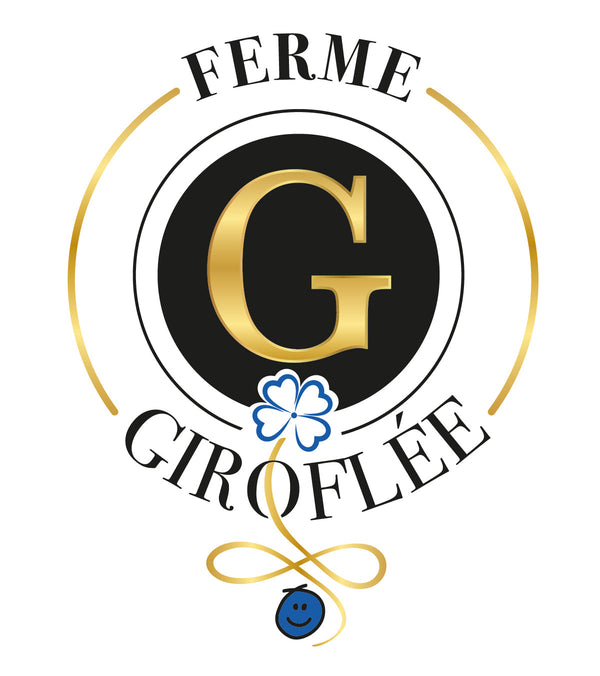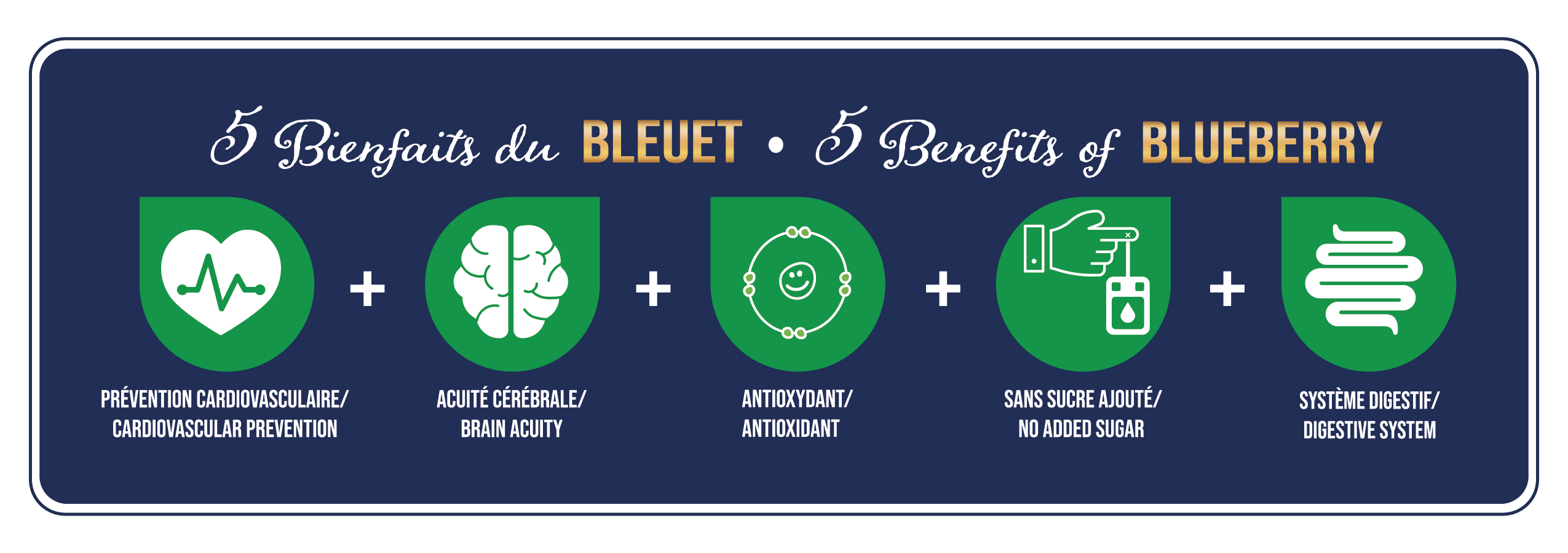Our History

The Dream
From childhood, Benoit Coulombe dreamed of being a farmer. Although some tried to discourage him, his perseverance and determination led him to chart his own path. As a young adult, he entered the agricultural sector through training in horticultural production at the Centre des Moissons de Beauharnois, then he entered the trade by working with competent agronomists and As a self-taught student, he undertook the study of numerous research papers. Having acquired more than 20 years of expertise in the field, Benoit was a fruit and vegetable picker, technical service advisor, agricultural business development consultant, Teacher in horticultural production and then assistant to the management of agricultural services in enterprises.
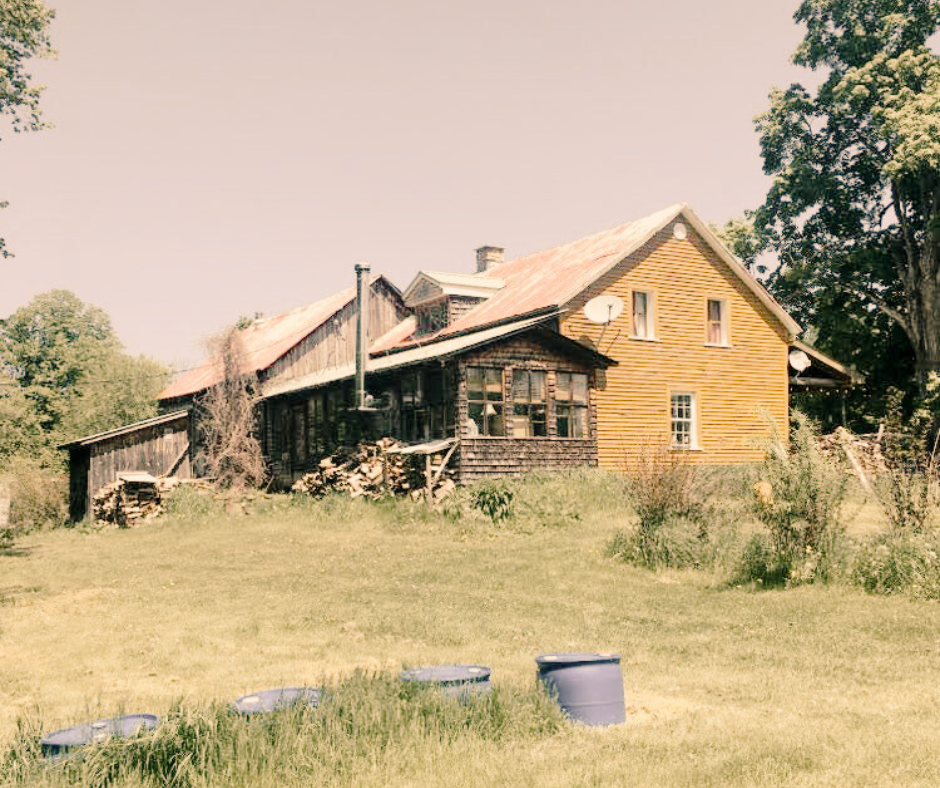
The Bicentenary
In 2014, he and his former wife, Nancy Blanchette, discovered on Napper Road in Hemmingford a few acres of undeveloped land opposite which was a property built around 1830. First of all, a stone cladding, a wood shingle cladding and a red sheet roof were used to decorate the bicentennial, then the barn adjacent to the west wall of the house was kept in natural wood. In order to found an organic blueberry plantation based on self-harvesting and artisanal production, Nancy, Benoit and their 3 boys, Baptiste, Caleb and Jeremy, moved into this house.
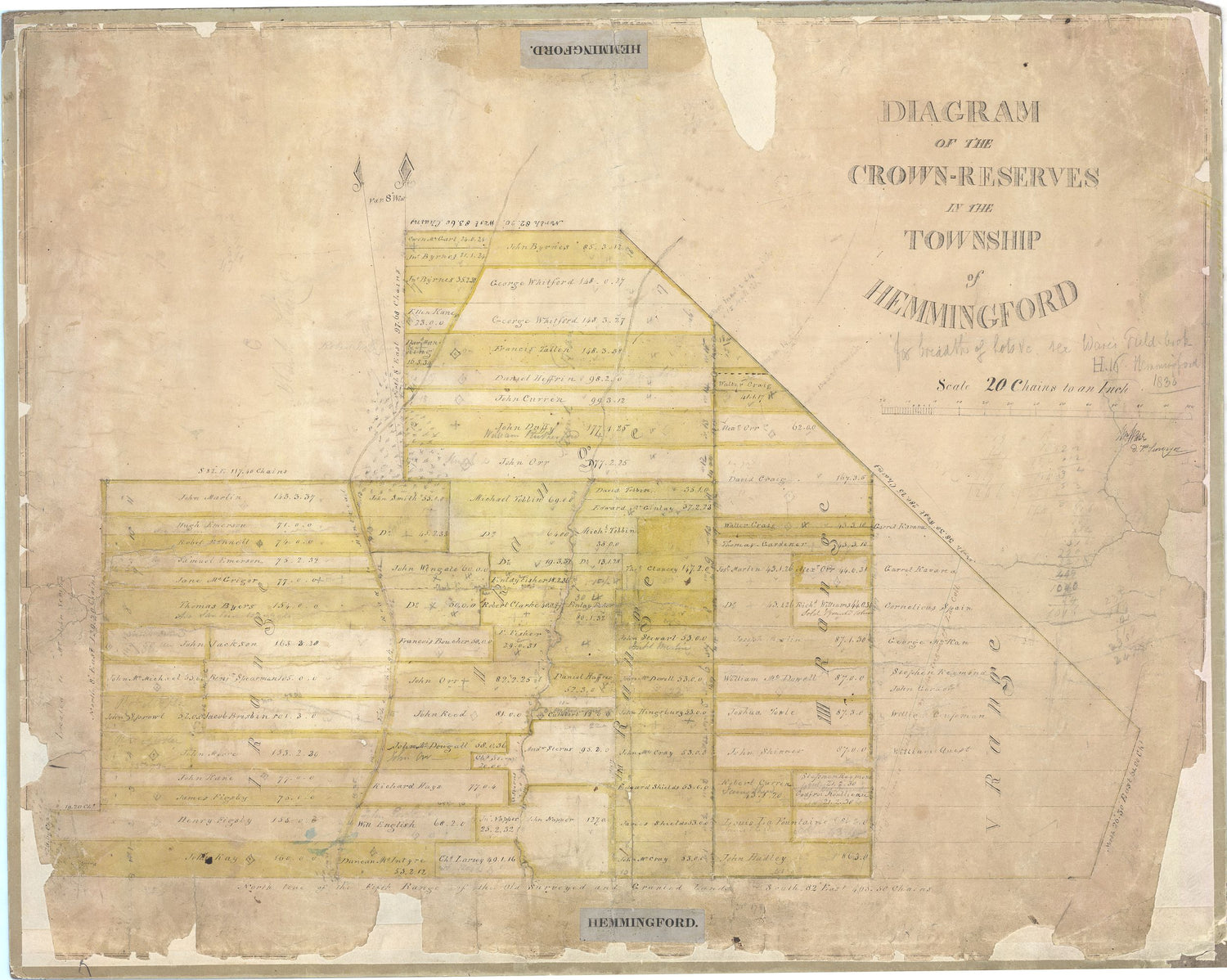
Since our arrival here, we have been conducting cadastral research to find out the origin of the house and everything points to the fact that it was built by John Gill Napper (1777-1858), an Irish descendant who immigrated in the 19th century and was said to have been granted 150 acres of the Crown. The man’s tombstone is one of the few remaining intact in the anglican St-Paul's cimetery, a former abandoned place of worship hidden in a small wooded area on Napper Road less than a kilometre from our farm. By coming to the Giroflée, you will have the chance to make a historical journey of the most mystical.
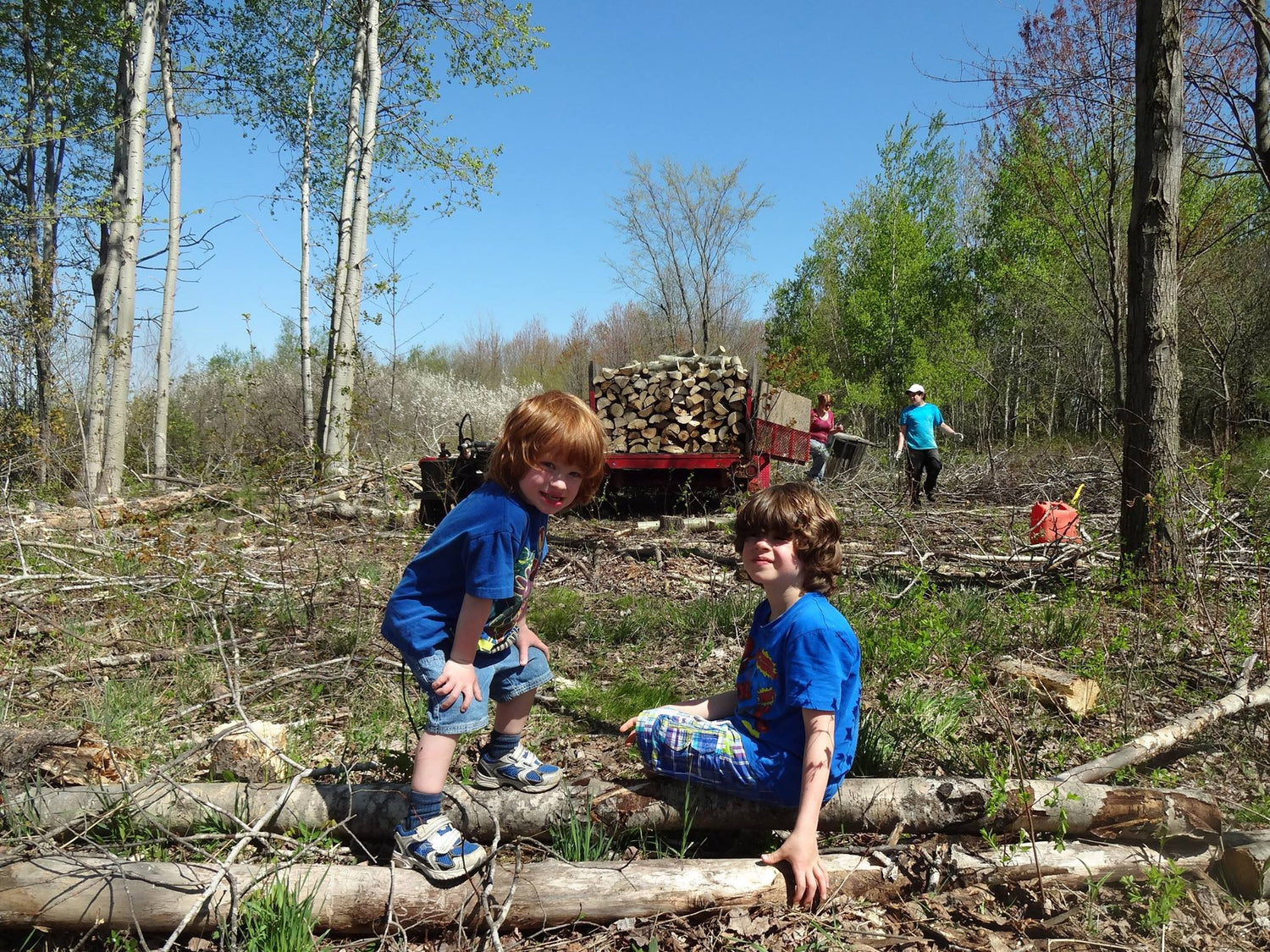
Beginnings on the Farm
Initially, only 4 of the 48 acres of Giroflée Farm were arable. Trees, roots and huge rocks had to be mechanically dislodged. Extensive field work has been done to make the land suitable for cultivation. For some soils, it was 4 years of work, manure amendments, green manure and fallow periods. The design of the development was carried out with the idea of respecting the balance of the natural ecosystem. Part of the land was maintained and another part created as wetlands, and most of the land remained forested. In terms of market gardening, the first 4000 blueberry trees were planted over a period of 3 years. Today, 6,500 plants stand on the 6.5 acres of blueberry tree that was certified organic by Ecocert Canada in 2017.
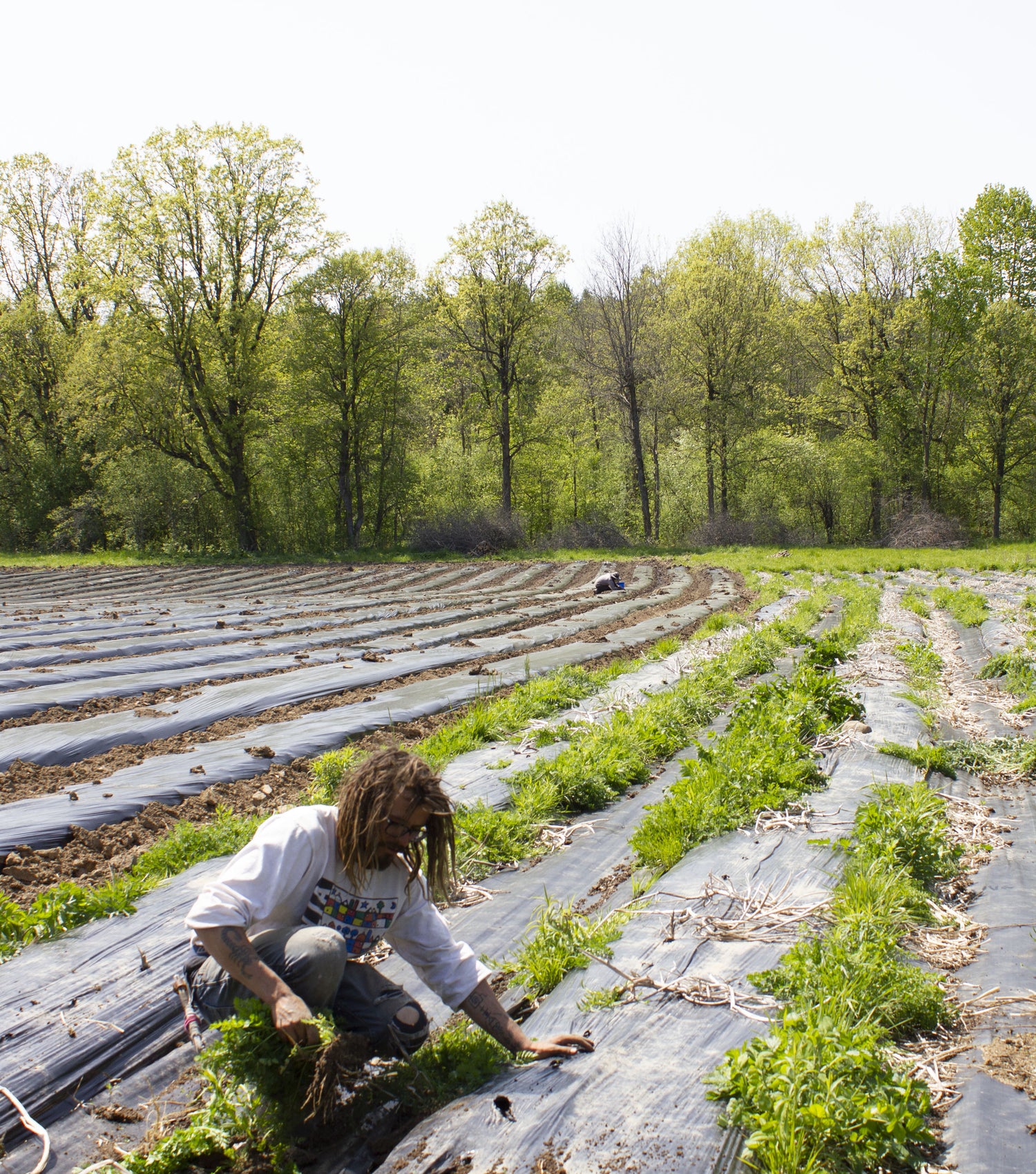
The Organic Blueberry Challenge
The blueberry loves rocky lands and forest cover, the symbiosis of fungi and bacteria. But its root system is fragile and the plant can quickly be stifled by weeds. This is the challenge of organic blueberries. In conventional production, with herbicides, soil biodiversity is destroyed, the soil defense system is reduced and blueberries become more vulnerable to disease. Therefore, fungicides must be applied and insecticides added to control pests.
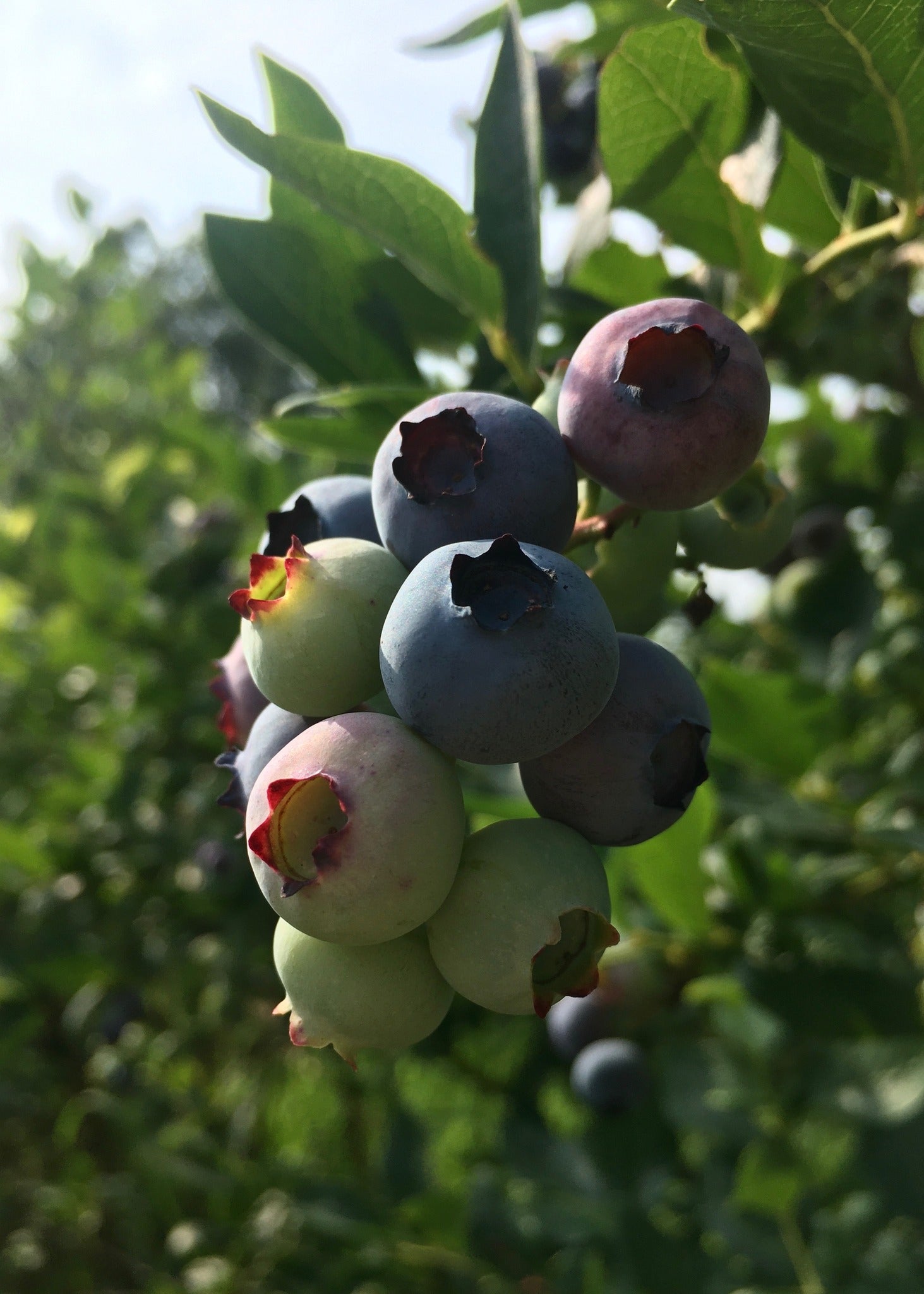
Compared to conventional agriculture, an organic blueberry plantation like the one at Ferme Giroflée costs 15 to 20 times more in terms of labour and wood chips for weeding. But we prefer to invest in job creation rather than herbicides because we are looking to produce the best possible quality of blueberry for human health and the health of all living things. 8 to 10 years are estimated for the implantation of blueberry in the field and the achievement of financial stability of a blueberry. This is mainly why we have very little in Quebec, especially in organic, although there is a strong demand for the delicious blueberries.
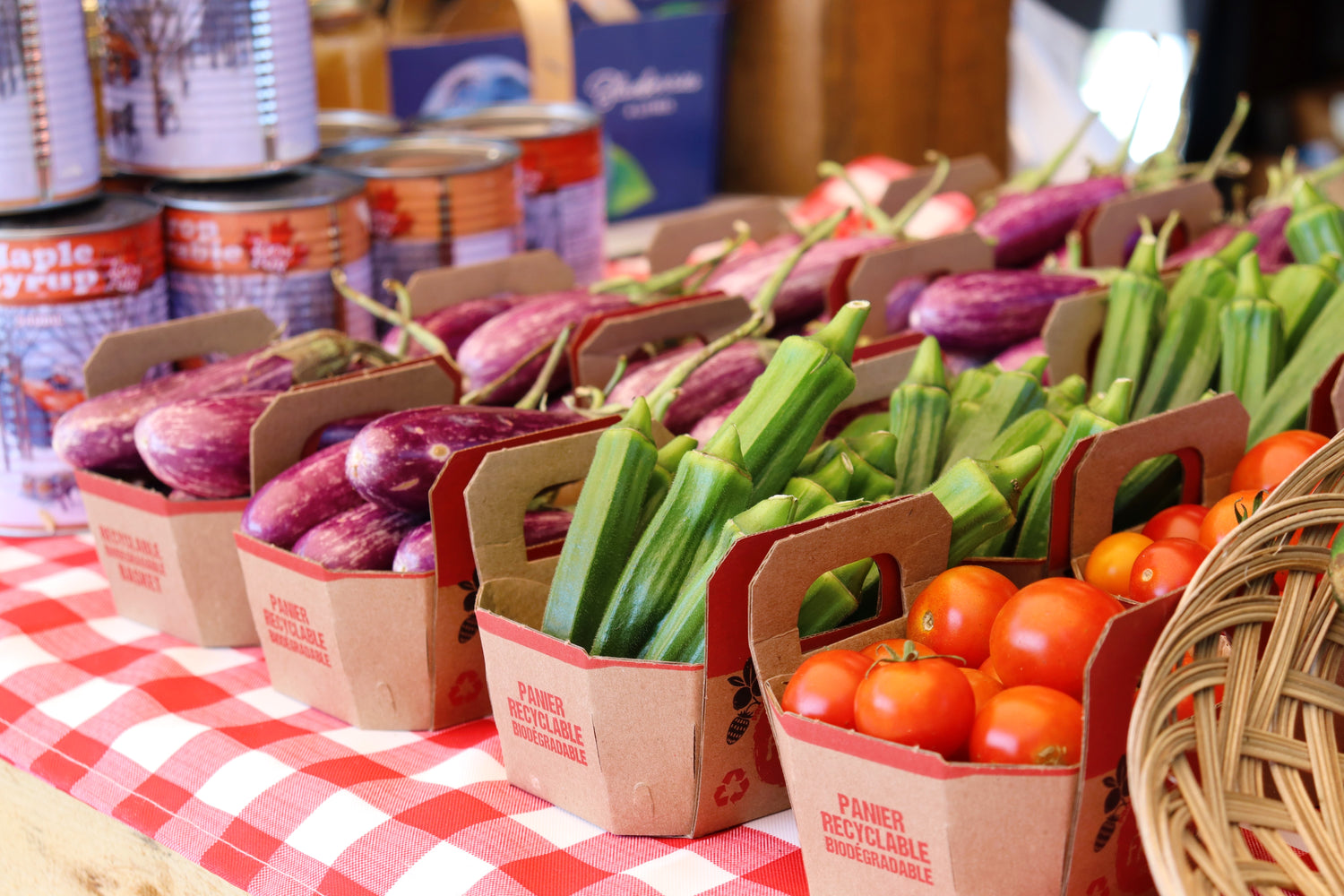
A Living Laboratory
Nevertheless, Ferme Giroflée is much more than an organic blueberry farm. Several cultivars of peppers, cherry tomatoes and hot peppers have managed to carve out a place for themselves in our fields in recent years in addition to mini-eggplant and cucamelon (commonly called mouse melon). Each year, different varieties are tested for the pleasure of our taste buds, our eyes and for the benefit of our good health. Giroflée was also designed as a living laboratory for socio-environmental transition. First there was the incubator project in which we rented plots of land to restaurateurs and aspiring market gardeners in order to allow the experimentation of start-up agri-food projects, then came the Collectif Giroflée, a group of artisanal market gardeners producing a variety of organic fruits and vegetables, and the Local Organic Bleuets Collective with organic Quebec blueberries. The incubator project and the ideal of the collective as a model of communalization for the marketing of organic products as a social economy enterprise allowed us to win the first round of the competition Startup 54 Chrono in 2018.
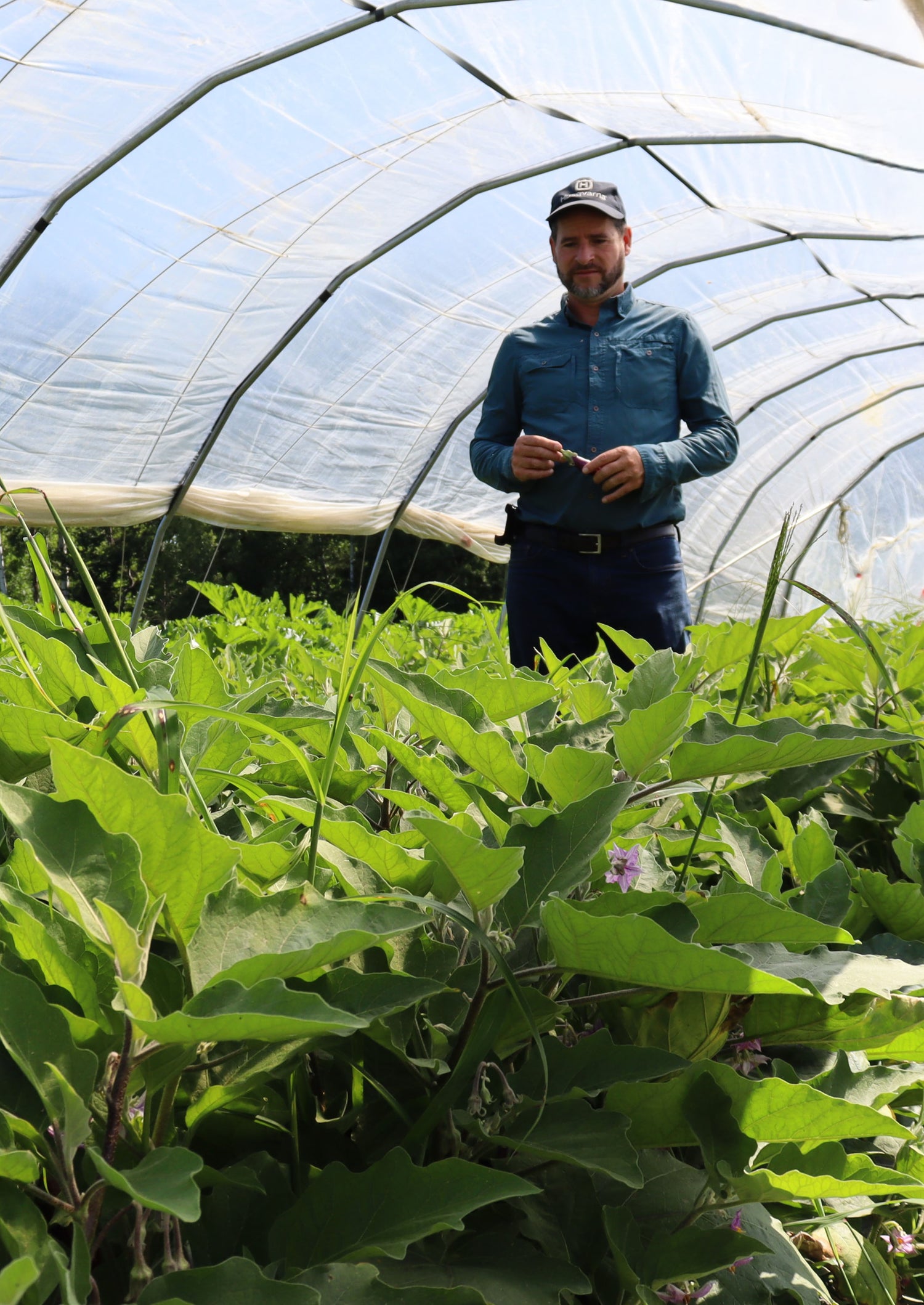
The Community Spirit
With a community spirit, Benoit also wants to bring humans and nature closer together. For him, the community is the social fabric necessary to co-construct the socio-ecological transition. He has a permacultural vision of the community that goes through human culture in synergy with the environment. Although they are no longer a couple, He and Nancy remain strong pillars for Ferme Giroflée, and a multidisciplinary team is growing year after year and new projects are born on the site through various initiatives made for and by the community. It is a space of co-creation where arts and science combine to make room for the realization of new ideas.

And there’s no doubt that this oasis at the crossroads of Williams and Napper in Hemmingford is a great place to spend some time. Whether it is for picking blueberry or other varieties, learn to eat well, learn about agroecology or just to take a bath in nature. La Ferme Giroflée is definitely a haven of peace for all those looking to recharge their batteries even if it’s only for a sweet morning.
